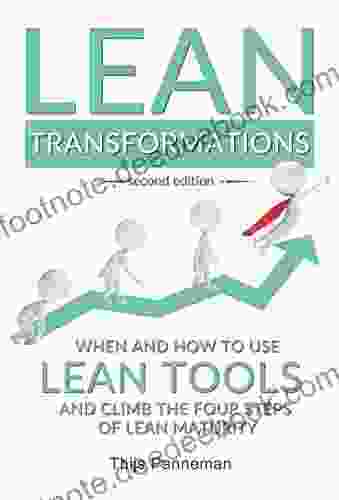Devising Institutions to Manage the Maine Lobster Industry: A Comprehensive Guide

The Maine lobster industry is a vital part of the state's economy and cultural heritage. Lobstering is the state's most valuable commercial fishery, and lobster is a major tourist attraction. However, the industry is facing a number of challenges, including declining lobster landings, increasing costs, and competition from imported lobsters.
In order to address these challenges, it is important to devise effective institutions to manage the lobster industry. These institutions should be designed to promote sustainability, efficiency, and fairness.
There are a variety of different types of management institutions that can be used to manage the lobster industry. These include:
5 out of 5
| Language | : | English |
| File size | : | 4451 KB |
| Text-to-Speech | : | Enabled |
| Screen Reader | : | Supported |
| Enhanced typesetting | : | Enabled |
| Word Wise | : | Enabled |
| Print length | : | 399 pages |
- Government regulations: Government regulations can be used to set catch limits, establish fishing seasons, and protect lobster habitat.
- Industry self-regulation: Industry self-regulation can be used to develop and enforce codes of conduct, establish best practices, and promote sustainable fishing practices.
- Co-management: Co-management is a partnership between government and industry in which both parties share responsibility for managing the fishery.
The type of management institution that is most appropriate for the Maine lobster industry will depend on a number of factors, including the specific challenges facing the industry, the resources available to manage the fishery, and the level of cooperation between government and industry.
There are a number of principles that should be considered when designing and implementing management institutions for the Maine lobster industry. These principles include:
- Sustainability: Management institutions should be designed to promote the sustainability of the lobster fishery. This means ensuring that lobster stocks are not overfished and that lobster habitat is protected.
- Efficiency: Management institutions should be designed to promote the efficiency of the lobster industry. This means minimizing the costs of fishing and maximizing the value of lobster landings.
- Fairness: Management institutions should be designed to be fair to all participants in the lobster industry. This means ensuring that all fishermen have a fair opportunity to participate in the fishery and that the benefits of the fishery are shared equitably.
There are a number of examples of successful management institutions that have been implemented in the Maine lobster industry. These include:
- The Maine Lobster Management Plan: The Maine Lobster Management Plan is a comprehensive management plan that was developed by the Maine Department of Marine Resources in cooperation with the lobster industry. The plan includes a number of measures to promote the sustainability, efficiency, and fairness of the lobster fishery.
- The Lobster Institute: The Lobster Institute is a non-profit organization that is dedicated to the study and promotion of sustainable lobster fishing practices. The institute provides training and education to lobster fishermen and develops new technologies to improve the efficiency of the lobster fishery.
- The Maine Lobster Marketing Collaborative: The Maine Lobster Marketing Collaborative is a marketing organization that is dedicated to promoting Maine lobster to consumers around the world. The collaborative develops and implements marketing campaigns and provides support to lobster fishermen and seafood businesses.
These are just a few examples of the many successful management institutions that have been implemented in the Maine lobster industry. These institutions have helped to promote the sustainability, efficiency, and fairness of the industry, and they have played a vital role in the success of the Maine lobster fishery.
The Maine lobster industry is a valuable part of the state's economy and cultural heritage. However, the industry is facing a number of challenges, including declining lobster landings, increasing costs, and competition from imported lobsters. In order to address these challenges, it is important to devise effective institutions to manage the lobster industry. These institutions should be designed to promote sustainability, efficiency, and fairness.
There are a number of different types of management institutions that can be used to manage the lobster industry. The type of institution that is most appropriate for the Maine lobster industry will depend on a number of factors, including the specific challenges facing the industry, the resources available to manage the fishery, and the level of cooperation between government and industry.
There are a number of principles that should be considered when designing and implementing management institutions for the Maine lobster industry. These principles include sustainability, efficiency, and fairness.
There are a number of examples of successful management institutions that have been implemented in the Maine lobster industry. These institutions have helped to promote the sustainability, efficiency, and fairness of the industry, and they have played a vital role in the success of the Maine lobster fishery.
5 out of 5
| Language | : | English |
| File size | : | 4451 KB |
| Text-to-Speech | : | Enabled |
| Screen Reader | : | Supported |
| Enhanced typesetting | : | Enabled |
| Word Wise | : | Enabled |
| Print length | : | 399 pages |
Do you want to contribute by writing guest posts on this blog?
Please contact us and send us a resume of previous articles that you have written.
 Book
Book Text
Text Story
Story Library
Library Paperback
Paperback E-book
E-book Magazine
Magazine Newspaper
Newspaper Paragraph
Paragraph Glossary
Glossary Bibliography
Bibliography Foreword
Foreword Annotation
Annotation Footnote
Footnote Scroll
Scroll Codex
Codex Classics
Classics Biography
Biography Reference
Reference Encyclopedia
Encyclopedia Dictionary
Dictionary Narrator
Narrator Character
Character Resolution
Resolution Librarian
Librarian Catalog
Catalog Borrowing
Borrowing Periodicals
Periodicals Scholarly
Scholarly Lending
Lending Reserve
Reserve Reading Room
Reading Room Rare Books
Rare Books Interlibrary
Interlibrary Thesis
Thesis Awards
Awards Reading List
Reading List Book Club
Book Club Theory
Theory Textbooks
Textbooks Stephen A King
Stephen A King W H Wall
W H Wall John Stuart Mill
John Stuart Mill Roger Reynolds
Roger Reynolds Michael J Graetz
Michael J Graetz Ishmael Jones
Ishmael Jones Bella Matthews
Bella Matthews Marilynn Mair
Marilynn Mair David Schoenbrod
David Schoenbrod Anna Nguyen
Anna Nguyen Stump Connolly
Stump Connolly Paul Brannigan
Paul Brannigan Marc A Thiessen
Marc A Thiessen Deanne Anders
Deanne Anders Kai M J
Kai M J Thomas W Savage
Thomas W Savage Leonardo Inghilleri
Leonardo Inghilleri Philippe Leclerc
Philippe Leclerc Amy Lou Jenkins
Amy Lou Jenkins Leta E Miller
Leta E Miller
Light bulbAdvertise smarter! Our strategic ad space ensures maximum exposure. Reserve your spot today!

 Dwayne MitchellKnit and Crochet Patterns: Inspiration and Tales from the Creative Community
Dwayne MitchellKnit and Crochet Patterns: Inspiration and Tales from the Creative Community Darren NelsonFollow ·19.3k
Darren NelsonFollow ·19.3k Allen GinsbergFollow ·16.8k
Allen GinsbergFollow ·16.8k Hugo CoxFollow ·15k
Hugo CoxFollow ·15k Blake BellFollow ·2k
Blake BellFollow ·2k Clark CampbellFollow ·9.8k
Clark CampbellFollow ·9.8k John KeatsFollow ·19.1k
John KeatsFollow ·19.1k Anthony WellsFollow ·6.3k
Anthony WellsFollow ·6.3k Leo MitchellFollow ·4.1k
Leo MitchellFollow ·4.1k

 Allen Ginsberg
Allen GinsbergUnveiling the True Meaning of Enough: A Comprehensive...
: In the relentless pursuit of progress and...

 Clay Powell
Clay PowellHawker Hunter: The Jet Fighter that Shaped British...
Nestled in the halls of aviation...

 Alec Hayes
Alec HayesWhen and How to Use Lean Tools and Climb the Four Steps...
Lean is a management...

 Trevor Bell
Trevor BellVolume of Charlotte Mason Original Homeschooling: A...
Charlotte Mason's original...

 John Parker
John ParkerAscending Tristan da Cunha: A Comprehensive Guide to...
Prepare yourself for an extraordinary journey...
5 out of 5
| Language | : | English |
| File size | : | 4451 KB |
| Text-to-Speech | : | Enabled |
| Screen Reader | : | Supported |
| Enhanced typesetting | : | Enabled |
| Word Wise | : | Enabled |
| Print length | : | 399 pages |












